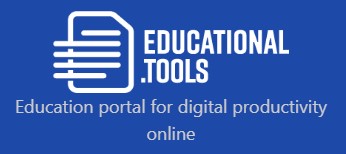Ways to Use Edu Tools in Everyday Learning

Strong 8k brings an ultra-HD IPTV experience to your living room and your pocket.
Edu Tools have become an essential part of modern learning, offering creative and effective ways to absorb knowledge. Whether you're a student, teacher, or a curious learner, these tools can simplify complex ideas, enhance engagement, and make learning enjoyable. Here’s how you can integrate Edu Tools into your everyday learning routine.
1. Organize Your Learning Schedule
Staying organized is the first step toward effective learning. Tools like Google Calendar, Notion, or Trello help you set reminders, track deadlines, and create to-do lists.
• Use these tools to map out your daily study schedule.
• Break larger tasks into smaller, manageable chunks.
• Set alerts to stay on top of assignments and projects.
These simple steps can boost your productivity and help you stay focused on your goals.
2. Engage with Interactive Apps
Interactive apps are perfect for turning learning into a fun experience. Whether you're mastering a new language, practicing math, or brushing up on history, there’s an app for almost everything.
• Duolingo makes language learning feel like a game with bite-sized lessons and rewards.
• Kahoot! and Quizizz allow you to test your knowledge through quizzes and challenges.
• Use apps like Anki for flashcards to memorize terms and definitions quickly.
These tools help you retain information better while keeping the process exciting.
3. Leverage Online Courses
Platforms like Coursera, Udemy, and Khan Academy provide access to courses on nearly any topic. They allow you to learn at your own pace, making them ideal for balancing learning with a busy schedule.
• Choose courses that align with your interests or career goals.
• Watch short lessons during lunch breaks or before bedtime.
• Apply what you’ve learned by completing assignments or projects.
This approach ensures steady progress while making the most of your time.
4. Collaborate with Others
Edu Tools can also help you connect and collaborate with peers. Platforms like Google Workspace, Microsoft Teams, and Slack make group projects and discussions seamless.
• Share documents, brainstorm ideas, and edit files in real-time.
• Use video conferencing tools for virtual study groups.
• Participate in online forums or communities to exchange knowledge.
Collaborating with others not only deepens your understanding but also improves communication and teamwork skills.
5. Explore Visual Learning Tools
Some learners grasp concepts better through visual aids. Tools like Canva, MindMeister, and Prezi enable you to create mind maps, infographics, and presentations.
• Use these tools to summarize topics visually.
• Create timelines, flowcharts, or diagrams for subjects like history or science.
• Present your ideas in creative formats to enhance understanding.
Visual learning tools simplify complex ideas and make them easier to remember.
6. Enhance Subject-Specific Skills
Specialized tools focus on individual subjects and help you master specific skills. For instance:
• GeoGebra helps with math and geometry.
• Procreate is perfect for art students exploring digital drawing.
• GarageBand supports music students in composing and editing tracks.
Integrating these tools into your daily routine makes learning more practical and enjoyable.
7. Use Assistive Technology
For learners with special needs, assistive tools like Voice Dream Reader, Text-to-Speech (TTS) software, or screen readers provide valuable support.
• Convert written text into audio to improve comprehension.
• Use speech recognition apps to take notes or complete assignments.
• Employ screen magnifiers or braille displays for enhanced accessibility.
These tools make learning inclusive and empower students to overcome challenges.
8. Incorporate Gamification
Gamification adds an element of fun to learning. Apps and platforms that incorporate game-like features, such as levels, rewards, and leaderboards, are particularly effective for younger learners.
• Challenge yourself to beat high scores in educational games.
• Compete with friends for rewards or badges.
• Set personal goals and reward yourself for achieving them.
This approach keeps learning exciting and encourages consistent effort.
9. Stay Updated with Educational Websites
Websites like Edu Tools are treasure troves of resources. They feature curated links to learning platforms, productivity tips, and subject-specific tools.
• Bookmark these websites for quick access.
• Explore their recommendations to discover new apps and platforms.
• Use their guides to troubleshoot common learning challenges.
Staying updated ensures you always have the best tools at your fingertips.
10. Review and Reflect
Finally, use tools to review and reflect on your learning progress. Apps like Evernote or OneNote are excellent for journaling your thoughts and tracking achievements.
• Write down what you’ve learned each day.
• Identify areas where you need improvement.
• Celebrate milestones to stay motivated.
Reflection helps you consolidate your knowledge and ensures steady growth.
Conclusion
Edu Tools are transforming how we learn every day. By integrating these tools into your routine, you can make learning more efficient, enjoyable, and accessible. From organizing schedules to exploring interactive apps, the possibilities are endless.
Start small, experiment with different tools, and find what works best for you. With the right approach, you’ll unlock a whole new level of learning.
Note: IndiBlogHub features both user-submitted and editorial content. We do not verify third-party contributions. Read our Disclaimer and Privacy Policyfor details.


